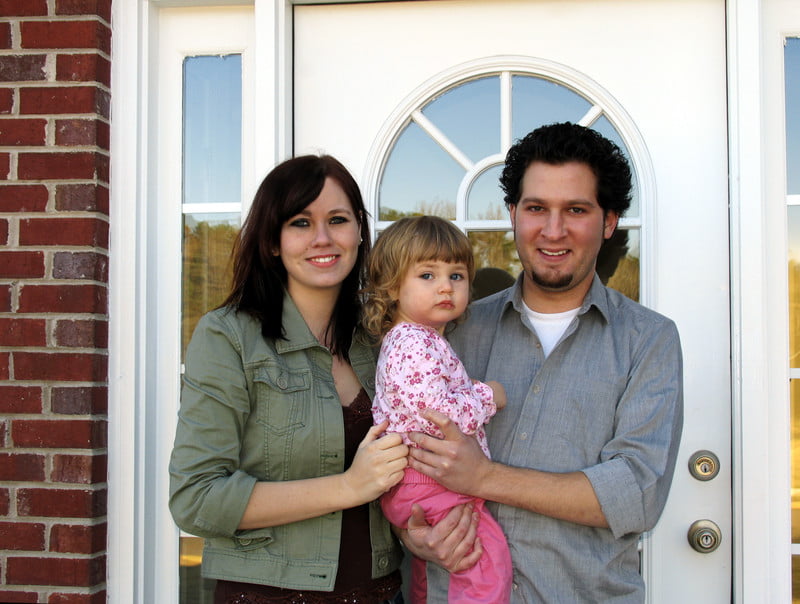Last Updated on April 17, 2024 @ 7:34 pm

The Marital Home is usually the largest asset a married family has to deal with during a divorce. What happens to the house when a divorce happens can lead to big fights in court. During the discussion of property division in divorce, the conversation between the spouses can get contentious. The divorcing couple determines what happens to the home and where each will live in the future unless a judge needs to decide after a hearing or trial. Divorce attorneys will explain the options available to each party and make sure their clients understand what works best for each particular situation. Speaking to an expert divorce lawyer that specializes in division of property is easy, and you can do so with a free consultation today!
What Happens to the House During a Divorce?
There are many different options when it comes to what should happen with the marital home during a divorce case. It depends on a range of factors such as when the house was purchased (before or after the marriage), what funds were used for the down payment (if large), was the house inherited, who can afford to keep the house, is one parent keeping the kids for a majority of the time, how long has the house been owned, or a number of of other factors. All of these factors, and many more, go into deciding what is best for either person and what a court would ultimately decide if there is no agreement.
One Spouse Buys the Other Out
If the couple purchased the home together after the marriage and the income of both individuals (or either individual, for that matter) was used to pay the mortgage or purchase it outright, the house is considered marital property in divorce. This means that each spouse is entitled to a share considered both fair and equitable or an equal share, as found in community property states. One spouse should not receive the house without compensating the other in some way. This might mean that one spouse transfers funds from a bank account or a retirement account to provide the other spouse with their marital share of the equity in the house. It also might mean one person keeps their retirement accounts or bank accounts and the other keeps the house if the values are reasonably close in value. If one spouse is able to do so, one spouse might refinance the home. Refinancing would remove the other spouse from the mortgage and deed and provide a payment to the other spouse for her or his marital share of the homes equity.
Sale of the Marital Home
Another option might involve neither party keeping the house – this is common in more than 50% of divorce cases. The couple may decide to sell the home and split the money from the sale either 50/50 or a different percentage based on either spouses bank/investment accounts or other considerations. There are multiple factors to consider in this situation including who lives in the home while it is listed for sale, who will pay for necessary repairs, and who will pay the mortgage, property taxes, and homeowner insurance until the home is sold. Couples must also determine what to do if the home is appraised for less than the mortgage balance or if the home is not sold before the divorce is finalized. Ordinarily, if the house is to be sold after the divorce is completed, the lawyer would include very specific language for how the home should be listed, who should pay the bills (maybe equally), and the time frame for the initial listing. Judges want specific information in the Judgment for dissolution of Marriage so that there isn’t a dispute in the future that brings people back to court.
Is the Home Marital Property?
This is usually the first step that needs to be considered. If the house was purchased during the marriage it is likely marital property. In some instances, the house where the married couple lives isn’t marital property (or a portion of it might not be marital property). This can happen for a variety of reasons. If a spouse inherits a home, even if during the marriage, it is likely that the property is not marital and is 100% owned by the person who inherited the house. This can be be off-set for different reasons such as if large improvements were made to the house with marital funds (money earned during the marriage by either person) or a new mortgage was taken out or the remaining mortgage was paid off during the marriage.
Is the House Not Marital Property (or partly marital property)?
If one spouse purchased the home before getting married, state law may consider it nonmarital property that is not subject to division. In this case, the spouse who owned the home before the marriage is awarded the property. However, factors like home improvements and increases in property value might be taken into account.
Consider this example: a person who purchases a home prior to the marriage but still has a large mortgage owed on the property. During the marriage, the majority of the payments are made and now the home has a lot of equity. The entire home might be considered marital property, or maybe the portion of increased value since the date of the marriage can be considered marital property. this would be because the balance was paid down with income earned during the marriage. An attorney can help a client determine which portion of the current value is marital and which is nonmarital property. This ensures fair property division and brings the divorce to conclusion more quickly.
Who Should Keep the House
If both people want to keep the marital home, a tough decision needs to be made. The first questions that needs to be answered is whether both people can even afford the home on their own. If they both can, the decision becomes even harder. In a marriage with kids, it ordinarily makes sense for the parent who ends up being the majority time parent to keep the marital home. This is for stability for the kids. So, if the wife has the kids most of the time and the husband has the kids every other weekend, it probably make sense for the wife to keep the marital home. Most lawyers and judges would agree with this too.
When there aren’t kids involved, deciding who keeps the home comes down to negotiating one piece of property for another piece of property. When that fails, a judge, at trial, will likely just order the property sold unless there is a compelling reason to do something else (example: if one person is disabled and the home is handicap accessible).
Summary and Next Steps
Lots of factors go into deciding what will happen to the marital home during a divorce.
- Is the home marital property?
- Is the home not marital property (or partial marital property)?
- Does one person want the home?
- Can one person afford the home?
- Will one parent have majority parenting time?
- Should the house be sold or refinanced and a buyout to take place?
All of these questions are essential to determining the best route to take. Having a divorce attorney work with you to determine what option is best and how the law applies to your situation is essential to getting you what you deserve. An experienced divorce attorney explains each option clearly, provides advice regarding applicable state law, and adds or changes language in the Judgment for Dissolution of Marriage (divorce decree) to protect the interests of his or her client.


